Whether you prefer to use fresh or dried herbs, adding them to a recipe is a quick way to transform a meal from being good to excellent. Plus, not only do herbs help flavor foods, researchers are finding that many herbs have antioxidants that help protect us against various diseases and cancers. These little leaves pack quite a powerful punch!
Below are some tips to help you enjoy the flavor of the most commonly used herbs in recipes. And always remember, when adding fresh herbs to recipes, a general guideline to follow is to use three times as much as you would use of a dried herb.
- Basil: This herb is a must-have in Italian dishes. Leaves are chopped and usually added to tomato-based recipes like spaghetti sauces and soups.
- Bay Leaf: Typically, the dried whole leaves of this herb are added to stews and meat dishes but be sure to remove the leaf before serving.
- Chervil: This herb is sweet and aromatic which makes it great for French cooking. Add this herb to soups, egg and cheese dishes and salads. Or, simply snip off a sprig and use it as decoration on your favorite dish.
- Chives: Minced leaves typically taste great when added to omelettes, cheese dishes, stews, soups, salad dressings and baked potatoes.
- Cilantro: This herb is very pungent and tastes great when added to Mexican, Asian or Caribbean dishes.
- Coriander: When cooking Southern European, Indian or South East Asian dishes, be sure to add this herb to your recipe because it has a spicy flavor. Chop the leaves and add it to curries, stews, soups or marinades.
- Dill: This herb is extremely aromatic and is great when added to vegetables, cream cheese, cottage cheese, fish, green beans, potatoes and tomatoes. Also, where do you think they get the name “dill pickles”…? Be sure to add this herb when canning cucumbers.
- Marjoram: Often confused with Oregano, this herb is sweeter and milder. It is usually added to fish, meat, poultry dishes and in tomato sauces.
- Mint: This herb is used in a wide-range of dishes including vegetable and fruit dishes, as well as in teas.
- Oregano: This herb is extremely strong and can sometimes overpower a dish if added in a large amount so be careful when using this herb. It’s great in meat, pizza and tomato-based recipes.
- Parsley: This herb is one of the most versatile because it can be added to dishes or used as a garnish, either chopped or in sprigs. Add chopped leaves to salads, soups, sauces or vegetables.
- Rosemary: Unfortunate or not, this herb does not play nice with others. It has a very distinct flavor and does not combine well with other herbs. Be sure to add it to meats, poultry, grilled foods and roasted potatoes.
- Sage: Use this herb when preparing stuffings, poultry and fish.
- Tarragon: Because of its distinct flavor, it is widely used in recipes such as vinegars, soups, stuffings, sauces, salad dressings, roast meat, poultry and fish.
- Thyme: This herb’s leaves are often used in sauces, soups, stews, eggs, meats and stuffings. It has a strong flavor so be careful when adding it to your dish.
Unlike dried herbs, fresh herbs are typically added at the end of the cooking time. Follow these tips when adding fresh herbs to dishes:
- Delicate herbs (i.e. basil, chives, cilantro, dill leaves, parsley, marjoram and mint) are added at the very end of the cooking time. They are also sprinkled over a dish before serving to act as decoration.
- Less delicate herbs (i.e. oregano, rosemary, tarrgon and thyme) can be added in the last 20 minutes of cooking.
To help you get the most and best use of your herbs, be sure to follow the steps below:
When storing fresh herbs…
- Snip off the ends of the stems on a diagonal
- Place in a tall glass with an inch of water
- Cover loosely with a plastic bag
- Place in refrigerator
- Change the water daily
When storing dried herbs…
- Place in an air-tight container
- Store in a cool, dry cupboard
When washing fresh herbs…
- Rinse thoroughly under running water
- Shake off extra moisture or spin dry in a salad spinner
- Use a paper towel to pat them dry
I absolutely love using herbs when cooking. I have a cupboard full of dried herbs and often pick up fresh herbs during trips to the grocery store. My go-to herbs are Basil, Parsley and Rosemary. What are yours?

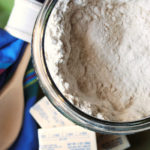
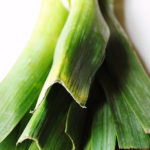
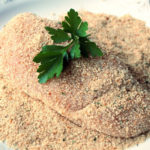

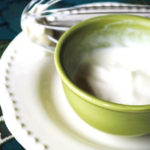
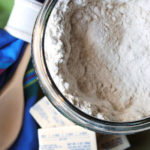
great tips and excellent info. I recently bought these 'herbs in tubes' ie Cilantro, parsley.. cuz i was tired of fresh herbs constantly going bad. I still haven't found a storage method that'll make them last for more than a few days. freezing perhaps?
I'm glad you liked the post! I've never heard of "herbs in tubes"…sounds very cool and interesting! I hate how fresh herbs die so fast so, as much as I hate to admit it, I use dried herbs often.
I've heard of freezing herbs but I'm a little too hesitant to try that method. I'm afraid they might lose their color and taste all funky. Has anyone tried this method? Does it work? If so, how did you do it? I would love to know!
while I can't speak on freezing herbs, one way I found to not let fresh basil go to waste is when I purchase basil for a recipe, I use all the excess basil to make some pesto sauce. bam, turned excess soon to be spiled basil into another pasta meal later in the week.